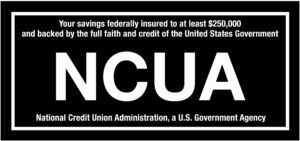Membership Agreement
“You” and “Your” shall mean the member who owns the account at the credit union, as well as any other owner of the account.
Sabattus Regional Credit Union is unique in the financial world. It is a co-op, owned by you and your fellow members and operated in your common interest. Your credit union is non-profit and exists only to serve you, not to make money. As a credit union member, you own, operate, and control your credit union through your Board of Directors. You are entitled to elect and be elected to the volunteer Board of Directors, which is composed of your fellow members and manages the credit union based on the needs and wishes of the members. The Board of Directors sets dividend rates, loan interest rates, and fees, among other things, and also determines credit union policy such as that set forth in this Agreement. In addition, your credit union works cooperatively with Maine’s other credit unions and the Maine Credit Union League, pooling resources for research and development of cost effective services which benefit not only you and your fellow members, but all credit union members in Maine.
General Terms
This Agreement contains the terms and conditions governing your membership in and accounts offered by your credit union. By signing your membership card and/or account agreement(s), you accept and agree to be bound by the provisions as set forth in them, this Agreement, the rate and fee disclosures applicable to your account(s) with your credit union, your credit union’s charter and bylaws, and any amendments or changes in terms to any of them. The credit union reserves the right to change any and all terms and conditions of any of them. You will receive notice of any changes in terms in accordance with all applicable state and federal laws and regulations.
The terms and conditions as set forth in this Agreement are applicable to all types of accounts offered by your credit union. There may be different or more specific terms and conditions which apply to certain accounts. Those different or specific terms are contained in the membership card, share certificate, or other documents evidencing the account. To the extent that those documents contain different terms from, or terms that are not included in, this Agreement, the terms in those documents supersede the terms contained in this Agreement.
Business/Commercial Members Are Prohibited From Engaging In Unlawful Internet Gambling – Unlawful Internet Gambling Enforcement Act Notice:
Restricted transactions as defined in Federal Reserve Regulation GG are prohibited from being processed through this account or relationship. Restricted transactions generally include, but are not limited to, those in which credit, electronic fund transfers, checks, or drafts are knowingly accepted by gambling businesses in connection with the participation by others in illegal or unlawful Internet gambling.
Privileges of Credit Union Membership
Credit Union Membership carries with it many privileges, including check cashing ability; the ability to open accounts other than ordinary share accounts, such as share draft accounts; to make and receive electronic funds transfers and wire transfers; and to obtain loans and lines of credit. However, it is your credit union’s policy to deny these privileges to members who cause a loss to the credit union for any reason. Therefore, if you cause a loss to your credit union, and thus to your fellow members, you will lose your privileges of credit union membership.
Account Ownership
You can structure the ownership of your account(s) at your credit union in a variety of ways. Rights and obligations relating to the account will depend on the type of ownership of the account.
(1) Sole Accounts. If you are the sole owner of an account, only you can make deposits or withdrawals or otherwise have access to the funds in the account. Under Maine law, upon your death, the funds in the account are distributed in accordance with the terms of your will or, if you do not leave a will, the intestacy provisions of the Probate Code.
(2) Joint Accounts. Any joint owner has an equal right of access to the funds in a joint account and can withdraw all of the funds in the account at any time without permission from or notification to the other joint owner(s). At the death of one joint owner, the funds automatically belong to the surviving joint owner(s). Joint owners do not have to be credit union members. Any person named as a joint owner of your regular share account will also be a joint owner of all your other sub accounts of the regular share account at your credit union unless otherwise specified in writing. Exceptions to this rule include share certificates and IRAs, which require separate signed agreements.
(3) Payable on Death Accounts. Payable on death accounts belong to the person(s) listed as the owner or owners of the account during their lives. On death, the funds automatically belong to the person or persons designated as payable on death beneficiaries. Any person named as a payable on death beneficiary of your regular share account will also be a payable on death beneficiary of all your other accounts at your credit union, except for share certificates and IRA accounts.
(4) Non-Consumer Organizational Accounts. The above are account types of “consumers,” i.e., individuals who hold accounts for personal, family, and household purposes. Non-consumer accounts may be opened by members and may include accounts owned by members that are organizations. The funds in an organizational account are owned by a corporation, trust (including a living trust), partnership, social club, sports team, etc. In order for the organization to be a credit union member, eligibility requirements must be met in accordance with the credit union’s charter or bylaws. If the organization does not qualify for membership, it can be a joint owner of the account with an individual member.
(5) Inactive/Dormant Accounts. If your account falls below any applicable minimum balance or you have not made any Transactions within the period of time specified in the Schedule, we may classify your account(s) as inactive. An account is generally only considered dormant when an applicable state law requires such classification (1.e., dormant or abandoned). Although having no obligation to do so, we reserve the right to not classify a particular account as either inactive or dormant if any owner thereof has other active accounts or services with us. You may be charged fees as set forth in the Schedule for inactivity, which is generally the failure to transact any business on an account for a period of after one year. Unless specifically prohibited by applicable law, we may also charge a service fee set forth on the Rate and Fee Schedule for processing your dormant account of $2.00 per month (“Abandoned Property/ Dormancy Processing Fee”). You authorize us to transfer funds from another account of yours to cover any such fees. Unless prohibited by applicable law, we further reserve the right to transfer your dormant account funds to a general Credit Union account and to suspend any further account statements. If a deposit or withdrawal has not been made on the account and we have had no other sufficient contact with you within the period specified by state law, the account will be presumed to be abandoned. Funds in abandoned accounts will be reported and remitted in accordance with applicable state law. Once funds have been turned over to the state, we have no further liability to you for such funds and if you choose to reclaim such funds, you must apply to the appropriate state agency.
Lien on Shares. A lien will be impressed on all of your credit union shares and share dividends in an amount equal to that which you may owe your credit union because of a loan, dues, or any other charges payable by you to your credit union. The lien may be enforced and your funds withdrawn and applied to your debt without further notice to you except where required by law, if you default in paying the amount you owe.
Account Closing. Your regular credit union share account cannot be closed until all amounts you owe your credit union are paid in full and all other accounts that you have with your credit union are closed.
Endorsements. All check/share draft endorsements must be made in the first one and one-half inches of the trailing edge of the back of the check/share draft. The trailing edge is opposite the left side of the face of the check. You will be responsible for any costs incurred by your credit union due to delays in returning checks or share drafts deposited into your account that do not comply with these endorsement standards.
Share Insurance. Funds in your accounts at your credit union are insured to at least $250,000 by the National Credit Union Administration (NCUA), an agency of the United States Government. Certain retirement accounts, such as IRAs and Keoghs, are insured separately up to $250,000. Copies of the NCUA brochure Your Insured Funds are available at the Credit Union office and are also available upon request.
Governing Law. The rights, duties, obligations and liabilities of you and your credit union in connection with your membership and account(s) are and shall be controlled by Maine and/or federal law as applicable and in effect at the time the rights, duties, obligations, and liabilities arise, other than as specifically set forth in this Agreement, your credit union charter and bylaws, or your specific account documentation.

